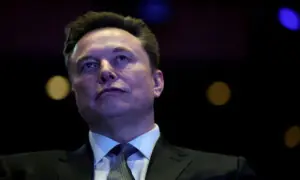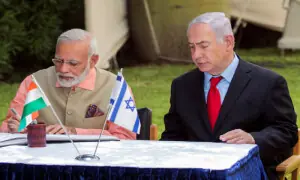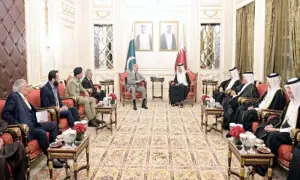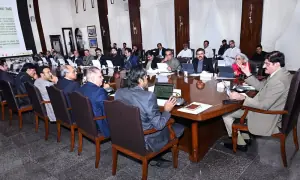Economist Atif Mian laments increasing hopelessness on Pakistan streets
3 min readEconomist Atif Mian has lamented the ‘hopelessness on the streets of Pakistan’ as the South Asian country grapples with high inflation and low economic growth.
“Is this just statistics? I have personally never seen as much hopelessness on the streets of Pakistan as now - it seems that anyone who can, wants to leave the country,” he said in a thread on X. “There is some credence to this perception of mine.”
The Princeton University professor also shared a graph to support his claim.
The chart plotted how frequently Pakistanis search for the word “visa” on Google relative to the rest of the world. The number of people searching for visas abroad has skyrocketed.

Pakistan is seeking its 24th International Monetary Fund loan programme to improve the economy and bring structural changes to avoid seeking bailout packages. Last month, the two sides reached an agreement for a loan programme.
Although the government has claimed to have been serious about the plans, many experts believe such decisions are not enough. They demand the government to cut expenses and take ownership of the country.
In June, the ruling coalition approved its tax-heavy Fiscal Year 2024-25 budget as several business experts reiterated that the government failed to tax sacred cows despite Finance Minister Muhammad Aurangzeb’s ambitions.
The government further increased taxes on the salaried class. For those earning between Rs600,000 to Rs1,200,000 per annum, the tax rate has been increased from 2.5%% to 5%.
Mian, who is one of the world’s top economists, said that poverty is a terrible thing – but it “always comes with a silver lining.” Poor people are willing to work for less, and knowledge they can use to be more productive is already out there, he said. “If only a government can help harness this natural advantage, growth and prosperity follows, as countries like Vietnam and Korea have shown.”
When former Federal Board of Revenue chairman Shabbar Zaidi appeared on News Insight with Amir Zia aired on Aaj News last month, he also spoke about the Southeast Asian country. He said that exports of Pakistan and Vietnam were $10 billion in 1990, but “today Vietnam’s exports stand at $600 billion and Pakistan’s at $30 billion.”
Mian went on to add that it takes effort to suppress growth for long periods of time. But some countries manage to do so through their collective decisions and remain stuck in what economists refer to as a “poverty trap”
“There is increasing evidence that Pakistan is stuck in such a trap due to decades of malpractice,” he said.
Also, read this
Govt will approach IMF after one year if expenses aren’t cut, says Kaiser Bengali
Atif Mian: Pakistan has already defaulted and needs ‘courageous’ decisions
A chart shared by him on the social media platform showed that Pakistan’s growth rate has progressively declined since the 80’s. He said that it has further decreased in recent years, depicting a stagnating economy.
According to the economist, the last two years have been the “worst” in Pakistan’s economic history. “2023 and 2024 stand-out - never has inflation been this high and growth this low. The closest years are the global crises of 2009 and 2020, but the recent two years are purely the country’s own making.”
Mian stated that the only way out of poverty traps is through a big policy change – a change that is “coordinated and credible over a sustained period of time.”
For the latest news, follow us on Twitter @Aaj_Urdu. We are also on Facebook, Instagram and YouTube.


























Comments are closed on this story.